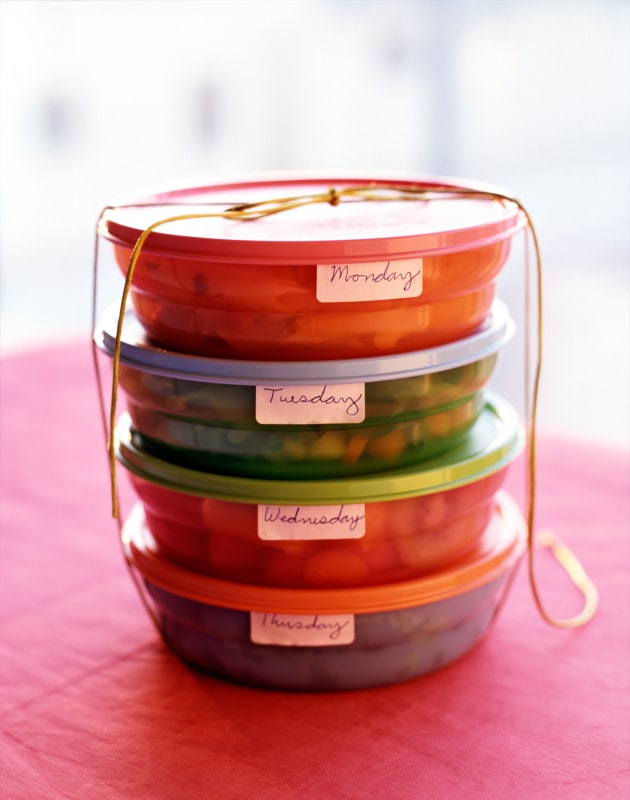Smart meal management
Part of adjusting to full-time studies can be organising your daily meals, especially if you have moved and are living independently for the first time. Nutritionist Fiona Sutherland offers a few tips.

Love Mum’s home cooking but travelling two hours to the studio each day? Have an amazing opportunity to study at a school or studio, and have to move interstate? Well, adventurers, one thing you’ll really have to think about is how you’re going to manage the very important job of fuelling your body for dancing if you’re used to it magically appearing in the fridge or pantry, or even on the plate in front of you.
Living away from home for the first time, regardless of age, can be a lot trickier than people imagine. But with some planning and thought, it can be the ideal time to develop independence and find your own feet.
When moving away from home, people commonly feel isolated or lonely. They often lack the time and energy to shop and prepare suitably nutritious meals, especially while enjoying everything independent life has to offer, such as delicious meals out (cooked for you of course), late nights and excessive socialising. Fun? Yes, absolutely! Over time however such a lifestyle can chip away at your wellbeing in ways which can be unexpected.
In terms of food and eating, it’s important to understand and reflect upon the specific needs of your body based on your training load, and aim to meet those needs adequately through the foods you’re choosing each day and week. The most common issue dancers have is not over-eating, as many would think, but under-eating, which may come as a surprise to many people. The pervasive fear of “eating too much” permeates the dance world, both in ways which make sense (such as wanting to dance while feeling physically comfortable) and in ways which can be really harmful (such as restricting food intake for the explicit purposes of body aesthetics). It’s certainly true that many dancers, when moving away from home for the first time, don’t’ realise how much food the dancing – let alone growing -- body needs. Building the confidence in your skills to meet your energy needs is not easy, particularly when your needs change over time or if you’ve not had the opportunity to learn from a sports dietitian or someone suitably qualified to step you through the process.
So, if you’re new to moving away from home, let’s move into practical mode to help get started:
Become familiar with your neighbourhood
We might ask “where is the local market or supermarket?” or “what days and times are they open” or “what if I need an emergency meal?” or “am I able to walk, or will I need to find transport?”
Get friendly with food! (call or ask a parent or someone who knows!)
Do your homework. How much does food cost? How long does food last? How do I tell if food is “off?” “Can I freeze this? How should I defrost it?
Setting a budget
What proportion of your budget will you need to allocate to food each week? Become familiar with how much food costs, used-by dates for fresh foods so you can plan ahead in a way which doesn’t interrupt your week too much with extra shopping trips.
Get organised
Without doubt, this is the most important part. Set a day each week where you plan dinners ahead of time, which then helps you write a shopping list (which you then try to stick to!) then sort out what needs to be stored, cooked or frozen. Some people try to cook a handful of meals on a Sunday then freeze portions for the week.
Invest in a few gadgets
Slow cookers and blenders can be your best friend – think smoothies, soups, curries and more. They are a fantastic way to just throw together a bunch of ingredients and drink immediately, or come home to a fresh, hot meal at night.
Prepare some freezer friendly meals and pack into “you-sized” containers for future meals. Ideas might be bolognese sauce (cook pasta fresh), soups (any, add some toast), casseroles or slow cooked meals.
Ask for help!
From your parents, friends, colleagues, teachers and health team. This might be for quick and easy recipes, tips on shopping at markets, emotional support or group dinners.
If you’re feeling like you need guidance and support from a professional who can help you manage your own unique needs, see a Sports Dietitian in your area (www.sportsdietitians.com.au)
Fiona Sutherland is an accredited practising dietitian and nujtrition consultant and a yoga teacher at Body Positive Australia and The Mindful Dietition. She is a regular writer for 'Dance Australia'.


